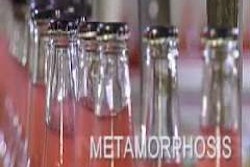Beer brewers nationwide are scrambling to head off proposed new federal regulations that would make it more difficult to use leftover grains from the brewing process as animal feed, forcing them to dump millions of tons of waste into landfills instead of reusing them in an effort to make their business models more sustainable.
The waste product, known as “spent grains,” is left over when a brewery steeps barley, wheat and other grains in hot water, extracting a sugary liquid that eventually becomes beer.
Nearly every brewery has an arrangement with nearby farmers to use the tons of spent grain produced every year as feed for cows, pigs and other livestock. The breweries usually give it away or sell it at an extreme discount compared with commercially available feed.
The Food and Drug Administration, however, is proposing rules that would make breweries meet the same standards as livestock and pet-food manufacturers, requiring sanitary handling procedures and extensive planning, record keeping and reporting to health officials.
While it's not clear exactly what such a system would cost, area brewers say it is likely to be impractical both financially and administratively.
If such rules are adopted, “the whole process would have to go away,” said Rich Norgrove, brewmaster at Bear Republic in Healdsburg and Cloverdale. “It would become cost prohibitive.”
For 18 years, Bear Republic has sold its spent grains to Knight's Valley rancher Cheryl LaFranchi, who has come to rely on it as a main food source for her 300 or so head of cattle. She takes up to 12.5 tons at a time, five times a week.
“Now the government wants to get involved,” she said. “What are they going to do with it? Put it in a landfill?”
To read more, click HERE.



















